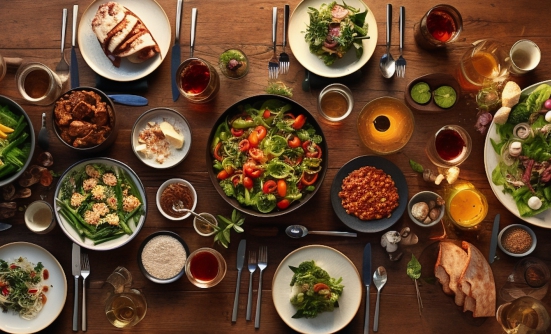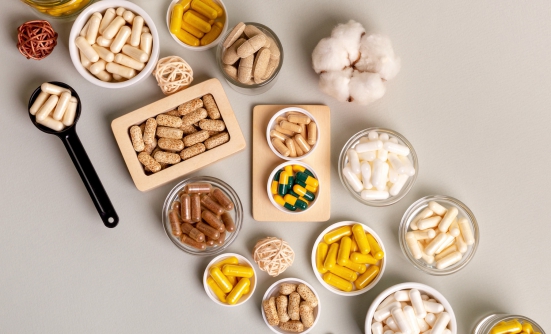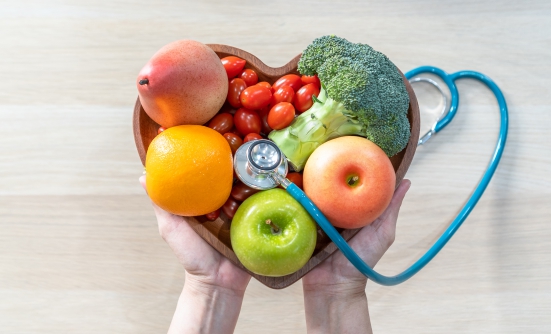Many people have questions about nutrition when they receive a cancer diagnosis, and understandably so. I’m sure that’s true for you too. You may wonder what you can eat to support your body through the challenge of treatment. And on the flip side, what foods you should stay away from.
It’s important to remember that there are no individual foods, or single nutrients, that have a major impact on cancer growth. Foods do not cause cancer, and they cannot cure cancer. However, we do know that good nutritional intake is an excellent and important partner to medical treatment plans.
While medical treatments target the tumor, the role of nutrition during treatment is to support every cell of the body so they can function as well as possible. You will want to stay nourished by consuming adequate calories and protein to support your body during and after treatment. Ideally, you will get adequate calories and protein from a variety of foods that offer nutritional benefits. There are many ways that good nutrition positively impacts treatment.
Good nutritional intake can:
- help repair and heal cells after a surgery
- assist in regrowth of hair and intestinal cells after chemotherapy
- prevent excessive weight loss
- prevent dehydration
- promote skin healing after radiation
- promote maintenance of muscle
- provide energy for daily activities and exercise
- prevent malnutrition
- promote optimal health in survivorship
- reduce risk of a secondary cancer
Are There Foods I Should Avoid?
Generally, people in cancer treatment need to be more cautious than normal when it comes to food safety. You don’t want to be exposed to unwanted bacteria, especially if your white blood cell count is low.
The foods to avoid when you’re in treatment include:
- undercooked (runny) eggs
- undercooked meat and fish
- sushi
- unpasteurized milk and cheese
- unpasteurized juices
- raw sprouts
It’s also advisable to avoid food samples at supermarkets and buffets, salad bars, or any place where food is “on display.”
Foods to Limit
For people in treatment who are generally responding well and do not have low white blood cell counts, or for those who have completed treatment, there are no foods that you have to avoid completely. However, there are some foods that I would suggest you limit. If you don’t like these foods or it doesn’t bother you to cut them out completely, then feel free to avoid them. Just remember that if any of these foods are some of your favorite things, it’s fine to have them in moderation.
Sugar-Sweetened Beverages
No, sugar does not “feed” cancer, as urban myth would have you believe. But common sense, along with scientific evidence, suggests that consuming too much sugar is not beneficial to our health. When it comes to beverages, our body needs water, but our taste buds prefer flavor. The best choices for beverages are plain water, unsweetened (or very lightly sweetened) tea and coffee, sparkling water, small portions of 100% fruit juice, and low-fat milk.
This does not mean you have to avoid sweetened beverages such as soda, sweet tea, or fancy coffee drinks, it just means you should only have them occasionally. Once (or maybe twice) a week is a reasonable rule of thumb for sweetened beverages.
Ultra-Processed Foods
Some processing of foods is acceptable. For example, think about frozen foods, or precut produce, even canned or packaged food items that remain very close to the way they are grown (vegetables, beans, cooked brown rice, tuna). These items are convenient and considered healthy processed foods.
However, foods in which much of the beneficial nutrients have been removed and a lot of extra, less nutritious components have been added can fill your stomach but leave you lacking important nutrients. Examples of ultra-processed foods—also called junk foods—are packaged sweets, chips, protein powders, processed protein bars, and hot dogs and other processed meats.
Just like sweetened beverages, limiting ultra-processed foods does not mean you have to eliminate them completely. If you are getting plenty of minimally processed fruits, vegetables, grains, beans, and nuts, then you can indulge in your favorite junk foods on occasion.
Alcohol
If you don’t drink alcohol, don’t start! Many people do not realize the health risks of excessive alcohol intake, especially when it comes to cancer risk. The current recommendation from the American Institute for Cancer Research (AICR) is that “for lower cancer risk, AICR recommends not to drink alcohol.”1
Many health organizations state that moderation in drinking is acceptable. Moderation is defined as 1 drink per day for women and 2 drinks per day for men.2 One drink is defined as 12 oz of beer (standard ABV), 5 oz of wine, or 1.5 oz of liquor.3
I know what you’re thinking, so let me answer your question. No, you can’t save those drinks up for the weekend!
Red and Processed Meats
Red meat is defined as beef, lamb, and pork (despite the pork industry’s marketing efforts, pork is not the “other white meat”). Processed meats are defined as meat preserved by smoking, curing, salting, or adding chemical preservatives. Processed meats include ham, salami, bacon, and sausages such as frankfurters and chorizo. According to the AICR, “For processed meat, every 50 grams (about 1 hot dog or 2 slices of ham) eaten daily raises the risk of colorectal cancer by 16%.”4 Therefore, they recommend limiting intake of these foods.
The recommendation regarding red meat is more lenient than the recommendation for processed meats. While it is not necessary to completely eliminate red meat from your diet, the AICR recommends consuming no more than 12 to 18 oz a week.5
The Bottom Line
When it comes to nutrition and health, what is most important is the pattern of eating and your habits regarding foods choices. There are no individual foods or nutrients that can prevent disease; rather, it is a combination of less processed, mostly plant foods that give your body the tools it needs to function at its best.
Limit the foods that are most likely to contribute to disease, but most of all, make sure you are getting plenty of the foods and nutrients that promote good health and support your immune system.
Eat Well!
References
- American Institute for Cancer Research. 10 Cancer Prevention Recommendations. www.aicr.org/resources/media-library/10-cancer-prevention-recommendations/. April 19, 2021.
- American Institute for Cancer Research. Alcohol and Cancer Risk: The Latest Research. www.aicr.org/news/alcohol-and-cancer-risk-the-latest-research/. January 5, 2017.
- National Institute on Alcohol Abuse and Alcoholism. What Is A Standard Drink? www.niaaa.nih.gov/alcohols-effects-health/overview-alcohol-consumption/what-standard-drink#:~:text=In%20the%20United%20States%2C%20one,which%20is%20about%2040%25%20alcohol. Accessed May 6, 2023.
- American Institute for Cancer Research. Processed Meats Increase Colorectal Cancer Risk, New Report. www.aicr.org/news/processed-meats-increase-colorectal-cancer-risk-new-report/. September 20, 2017.
- American Institute for Cancer Research. Limit Consumption of Red and Processed Meat. www.aicr.org/cancer-prevention/recommendations/limit-consumption-of-red-and-processed-meat/. Accessed May 6, 2023.
About the Author
Julie Lanford, MPH, RD, CSO, LDN, is a registered dietitian nutritionist, a board-certified specialist in oncology nutrition, and the Wellness Director of Cancer Services, Inc. in Winston-Salem, NC.











